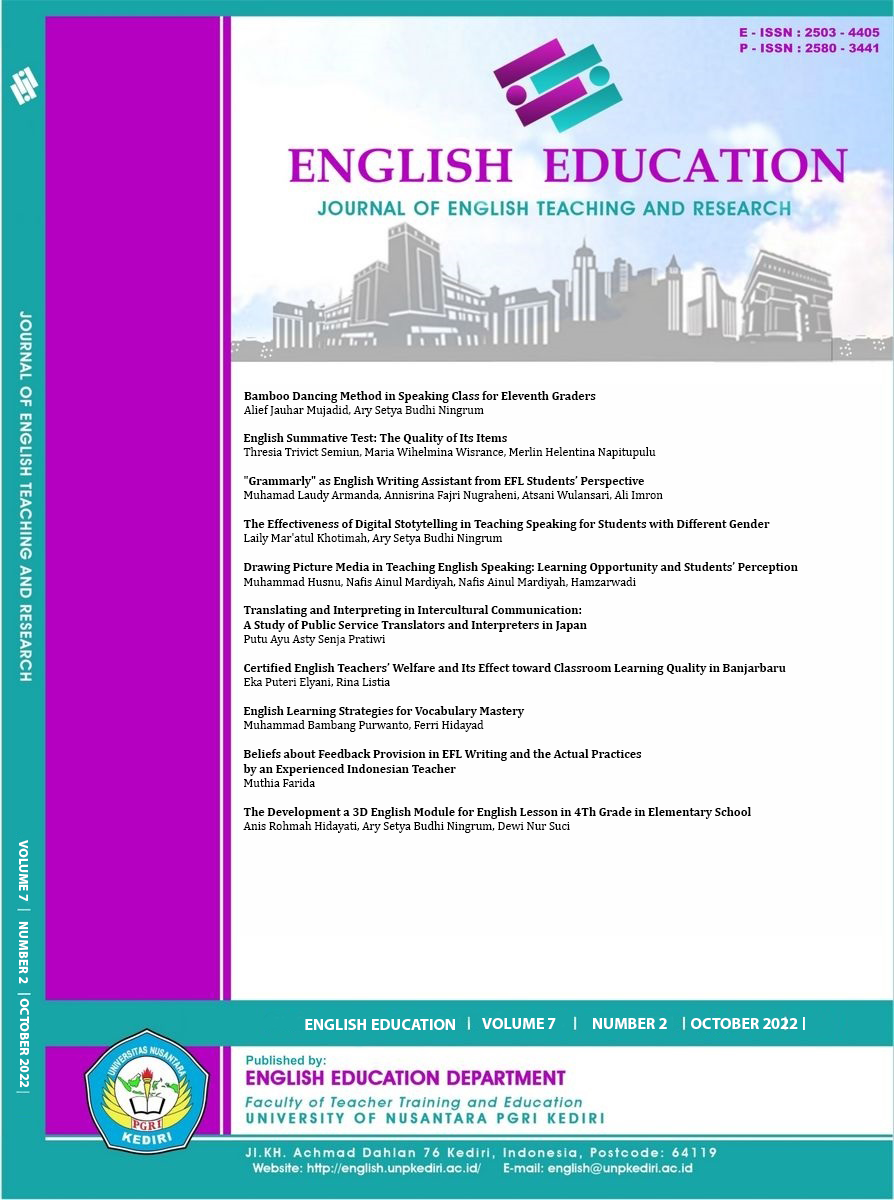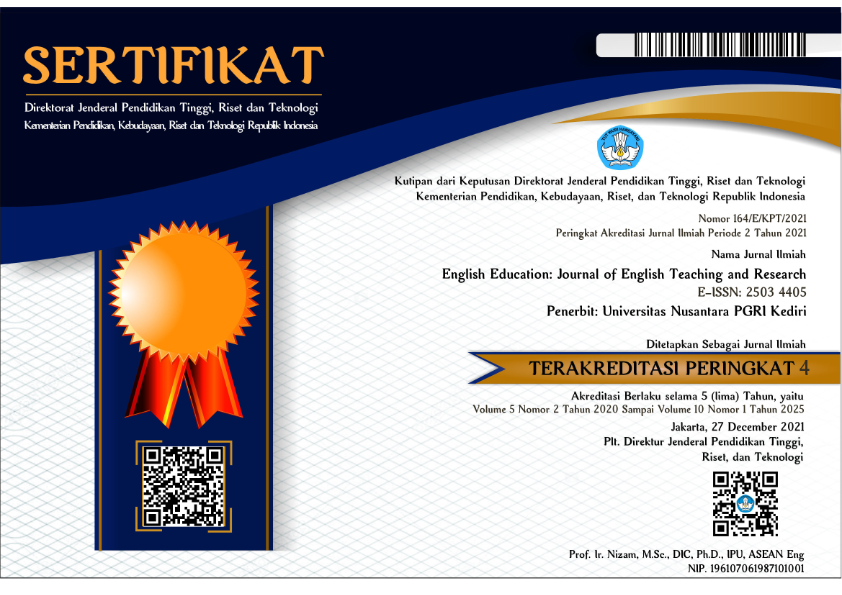Translating and Interpreting in Intercultural Communication: A Study of Public Service Translators and Interpreters in Japan
DOI:
https://doi.org/10.29407/jetar.v7i2.18358Keywords:
Translating, Interpreting, Translator, Interpreter, Intercultural, communication, Public serviceAbstract
The language and cultural barriers in the multilingual population have risen in Japan and resulted in the importance of public service translators and interpreters. Understanding thepublic service translators and interpreters’ roles and perspectives in intercultural communication in Japan is interesting and important to be investigated to explore the emotional and psychological impact on their work. Despite several research on translating, interpreting, or intercultural communication do exist, however the public service translators and interpreters’ emotional and psychological impact on their work has generally not been much researched. Therefore, it is necessary and meaningful to study the perspective and role of the public service translator and interpreters in the context of translation and intercultural communication.This research is based on the longitudinal observation and interview with ten public service translators and interpreters in Yamaguchi City, Japan. It was found that their preferences toward their work and other psychological aspects such as willingness to communicate, anxiety, and empathy also influence their role and perspective.
Downloads
References
Cao, H. (2020). A Study of Translation in Intercultural Communication. 2nd International
Conference on Humanities, Cultures, Arts and Design (ICHCAD 2020)
Catford, J. (1965). A Linguistic Theory of Translation. Oxford: Oxford University Press
Djigić, G., Stojiljković, S., & Dosković, M. (2014). Basic personality dimensions and teachers’ self-
efficacy. Procedia - Social and Behavioral Sciences,112, 593 – 602.
http://doi.org/10.1016/j.sbspro.2014.01.1206
Ulvydiene, L. (2013). Psychology of Translation in Cross-Cultural Interaction. Procedia - Social
and Behavioral Sciences 84 (2013) 1889 – 1898
House, J. 2012. Translation, Interpreting and Intercultural Communication. In The Routledge
Handbok of Language and Intercultural Communication. Editor Jane Jackson. Routledge.
London and New York.
Köksal, O. & Yürük, N. (2020). International Journal of Curriculum and Instruction 12(1) 327–338
Kowner, R. (2017). Japanese Miscommunication With Foreigners In Search For Valid
Accounts And Effective Remedies.
Margolis, E. 2020. Japan Doesn’t Want to Become Another Casualty of English skills bring status,
but the public remains stubbornly bad at learning.
(https://foreignpolicy.com/2020/05/26/japan-doesnt-want-to-become-another-casualty-of- english/)
https://www.statista.com/statistics/687809/japan-foreign-residents-total-number/
Pratiwi, Putu Ayu Asty Senja. (2021). Effects of Self-Efficacy, Belief in Learning and Learning
Strategies, on Language Knowledge and Language Use: A Study of English as a Foreign
Language on Bali. Ph.D. Dissertation. Yamaguchi University. Japan.
Solano, M.A.A. (2012). Positioning of volunteer interpreters in the field of public service
interpreting in Spanish hospitals A Bourdieusian perspective. Ph.D Thesis. Manchester
University.
https://www.research.manchester.ac.uk/portal/files/54519703/FULL_TEXT.PDF
Yalçın, O. & İnceçay, V. (2014). Foreign language speaking anxiety: The case of spontaneous
Speaking activities 5th World Conference on Educational Sciences - WCES 2013. Procedia –
Social and Behavioral Sciences 116 ( 2014 ) 2620 – 2624
JAPANESE MISCOMMUNICATION WITH FOREIGNERS
https://www.dijtokyo.org › dij-jb15_Kowner
Downloads
Published
Issue
Section
License
Authors who publish with this journal agree to the following terms:
- Copyright on any article is retained by the author(s).
- The author grants the journal, the right of first publication with the work simultaneously licensed under a Creative Commons Attribution License that allows others to share the work with an acknowledgment of the work’s authorship and initial publication in this journal.
- Authors are able to enter into separate, additional contractual arrangements for the non-exclusive distribution of the journal’s published version of the work (e.g., post it to an institutional repository or publish it in a book), with an acknowledgment of its initial publication in this journal.
- Authors are permitted and encouraged to post their work online (e.g., in institutional repositories or on their website) prior to and during the submission process, as it can lead to productive exchanges, as well as earlier and greater citation of published work.
- The article and any associated published material is distributed under the Creative Commons Attribution-ShareAlike 4.0 International License








 Article template
Article template



